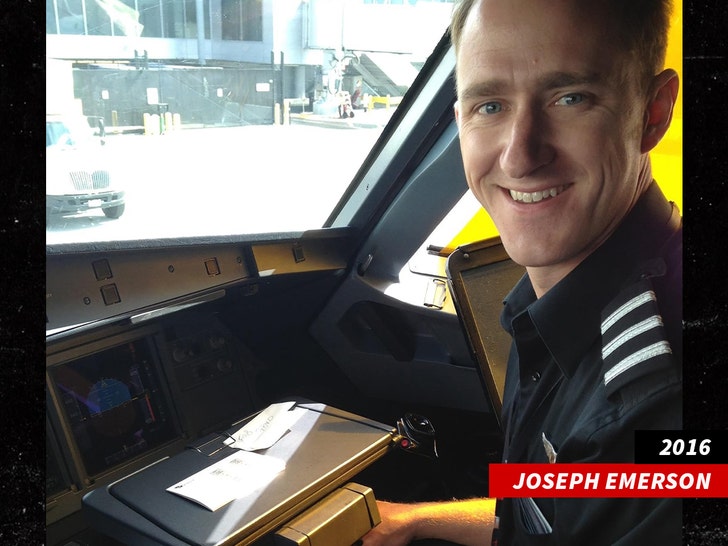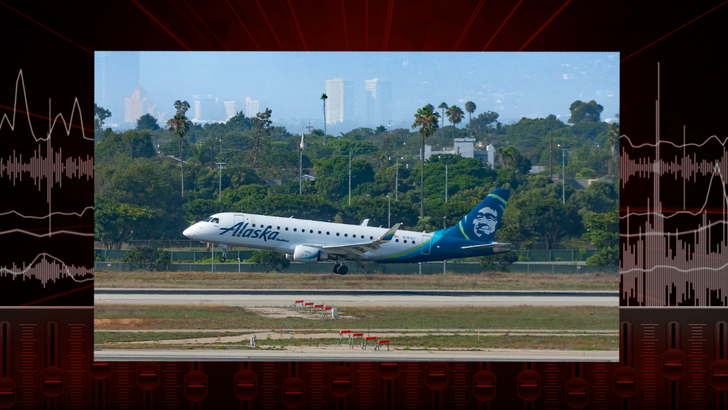Off-Duty Pilot Attempts Murder During Nervous Breakdown After Taking Mushrooms
In a shocking incident, an off-duty pilot from Alaska Airlines attempted murder during a nervous breakdown after taking psychedelic mushrooms. Joseph D. Emerson, the pilot in question, confessed to law enforcement that he tried to shut off the plane’s engines during a “nervous breakdown” in the cockpit. He cited exhaustion, dehydration, and lack of sleep as contributing factors to his actions. Emerson also disclosed his consumption of magic mushrooms, claiming it was his first time trying them. This distressing event has raised concerns about mental health and drug use among pilots and highlights the importance of ensuring the well-being of those responsible for our safety in the skies.

Title: Off-Duty Pilot Attempts Murder During Nervous Breakdown After Taking Mushrooms
Introduction
In a shocking incident that has sent shockwaves through the aviation community, an off-duty Alaska Airlines pilot attempted to take down a sister airline’s plane during a nervous breakdown. This unimaginable act of violence was later attributed to a combination of severe fatigue, dehydration, and the pilot’s admission of taking psychedelic mushrooms. The incident has raised concerns about mental health support for pilots and highlighted the potential dangers of substance use among aviation professionals.
Background Information
Off-Duty Pilot Tries to Take Down Sister Airline’s Plane
In a terrifying turn of events, an off-duty Alaska Airlines pilot, Joseph D. Emerson, attempted to shut off the engines of a sister airline’s plane while in the cockpit. The motive behind this shocking act remains unclear, but it has left the aviation industry in a state of disbelief and concern for passenger safety.
Pilot Blames Nervous Breakdown and Lack of Sleep
Emerson later admitted to law enforcement officials that he was experiencing a nervous breakdown at the time of the incident. He also cited a severe lack of sleep, which had resulted in extreme fatigue and dehydration. These factors likely contributed to his impaired judgment and erratic behavior.
Admission of Taking Mushrooms
During the investigation, Emerson made a startling admission of having consumed psychedelic mushrooms prior to the incident. This revelation has raised questions about the potential influence of drugs on his mental state and decision-making abilities during the flight.
Incident Details
Attempt to Shut Off the Plane’s Engines
Emerson’s attempt to shut off the plane’s engines while in mid-flight was a dangerous and potentially catastrophic act. Thankfully, the flight crew managed to subdue him and prevent any harm to the passengers or the aircraft. However, the incident has shed light on the potential vulnerability of cockpit security protocols and the importance of ensuring the mental stability of those entrusted with flying planes.
Feelings of Dehydration and Fatigue
Emerson confessed to feeling dehydrated and tired during the incident. The combination of extreme fatigue and dehydration can significantly impair cognitive function, making it difficult to think clearly and make rational decisions. These physical conditions likely played a role in Emerson’s disturbed state of mind.
40 Hours Without Sleep
The lack of sleep reported by Emerson is deeply concerning. Research has consistently shown that sleep deprivation negatively impacts cognitive abilities, including decision-making, attention, and reaction times. The aviation industry has strict regulations regarding pilot rest requirements, highlighting the critical importance of ensuring pilots are adequately rested before assuming control of an aircraft.
Perception of Pilots Not Paying Attention
Emerson’s reported belief that the pilots were not paying attention to the situation further highlights the need for a supportive and vigilant aviation environment. The potential breakdown in communication and the perception of negligence among flight crew members reveal serious concerns about crew dynamics and the ability to detect signs of distress among colleagues.

Use of Psychedelic Mushrooms
First-Time Use of Magic Mushrooms
Emerson’s admission of consuming magic mushrooms raises significant questions about his state of mind. It is particularly alarming that this was reportedly his first time using psychedelics, as inexperienced users can have unpredictable reactions to the substance. The potential influence of these drugs on his behavior during the flight cannot be ignored.
Unclear Timing and Dosage
The exact timing and dosage of the mushrooms consumed by Emerson remain unclear. Without this information, it is challenging to determine the extent to which the psychedelics influenced his actions and mental state during the flight. Further investigation is necessary to fully understand the connection between the drug use and the attempted act of violence.
Possibility of Being Under the Influence During Flight
Based on Emerson’s admission of consuming mushrooms and the lack of clarity regarding timing and dosage, there is a possibility that he was under the influence of the substance during the flight. If this is indeed the case, it raises serious concerns about aviation safety protocols and the potential for impaired judgment and decision-making among pilots.
Legal Consequences
Arrest and Charges of Attempted Murder
Emerson was promptly arrested following the incident and charged with 83 counts of attempted murder. These charges reflect the severity of the potential harm that could have been caused by his actions. The legal process will determine his guilt or innocence.
Additional Charges of Interfering with Flight Crew
In addition to the charges of attempted murder, Emerson is also facing charges of interfering with flight crew members and attendants. This charge carries a prison sentence of up to 20 years, underlining the seriousness of his actions and the impact they had on the safety of the flight crew and passengers.
Potential Prison Sentence
If convicted of the charges against him, Emerson could face a substantial prison sentence. These legal repercussions serve as a reminder of the gravity of attempting to harm others on an aircraft, as well as the need for robust security measures to prevent such incidents from occurring in the future.

Cockpit Audio and Statements
Pilots’ Testimony of Emerson’s Distress
The testimonies of the pilots involved in the incident provide valuable insight into the state of distress Emerson was experiencing. Their accounts suggest that he displayed visible signs of distress and vocalized his feelings of not being okay before attempting to shut off the engines. This information is crucial for authorities to understand the events leading up to the incident.
Interaction with Flight Attendants
Emerson’s interactions with the flight attendants further shed light on his mental state and intentions during the incident. His statements during the flight, such as “You need to cuff me right now or it’s going to be bad” and “I messed everything up,” indicate a heightened level of distress and guilt. The flight attendants’ statements provide important firsthand accounts of Emerson’s intentions and the potential harm he intended to cause.
Self-Admission of Causing Harm
Perhaps the most disturbing aspect of the cockpit audio and statements is Emerson’s self-admission of causing harm. His statement that he had “tried to kill everybody” is deeply alarming and underscores the potential severity of the situation. These statements serve as a chilling reminder of the importance of early detection and intervention for individuals experiencing mental health issues.
Public Reaction
The public reaction to this shocking incident has been a mix of disbelief, concern, and demands for increased mental health support for airline personnel. The safety of passengers is paramount, and incidents like these highlight the critical need for mental health screenings, support systems, and ongoing monitoring of aviation professionals. The incident serves as a wake-up call for the industry to prioritize mental health and ensure the well-being of those responsible for the lives of countless travelers.

Conclusion
The attempted murder by an off-duty pilot during a nervous breakdown and after taking mushrooms is a deeply unsettling event that has shaken the aviation industry to its core. The incident raises critical questions about mental health support for pilots, the potential dangers of substance use among aviation professionals, and the need for robust security protocols in the cockpit. Police investigations, legal consequences, and industry reflections will shape the outcome of this alarming incident, but it serves as a stark reminder of the potential risks associated with mental health struggles and substance use in high-stress professions.






